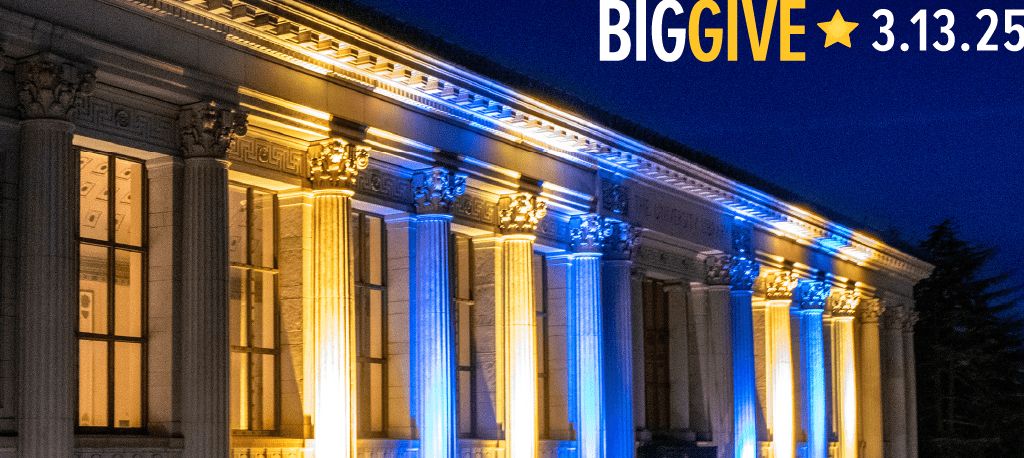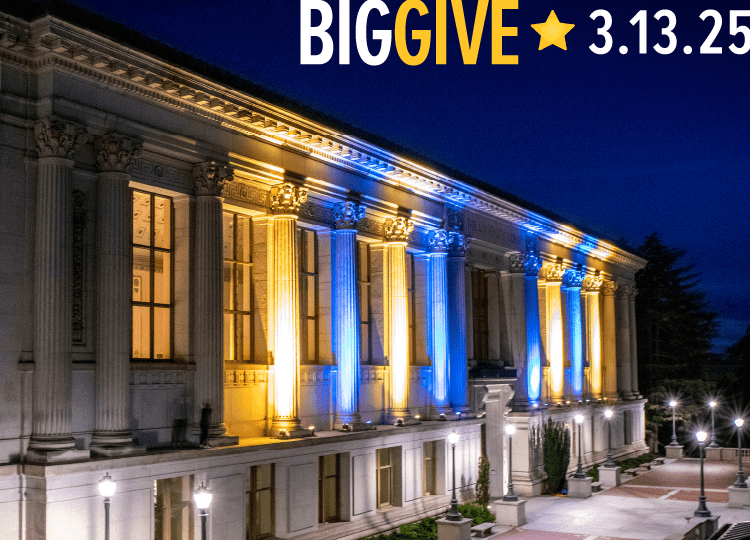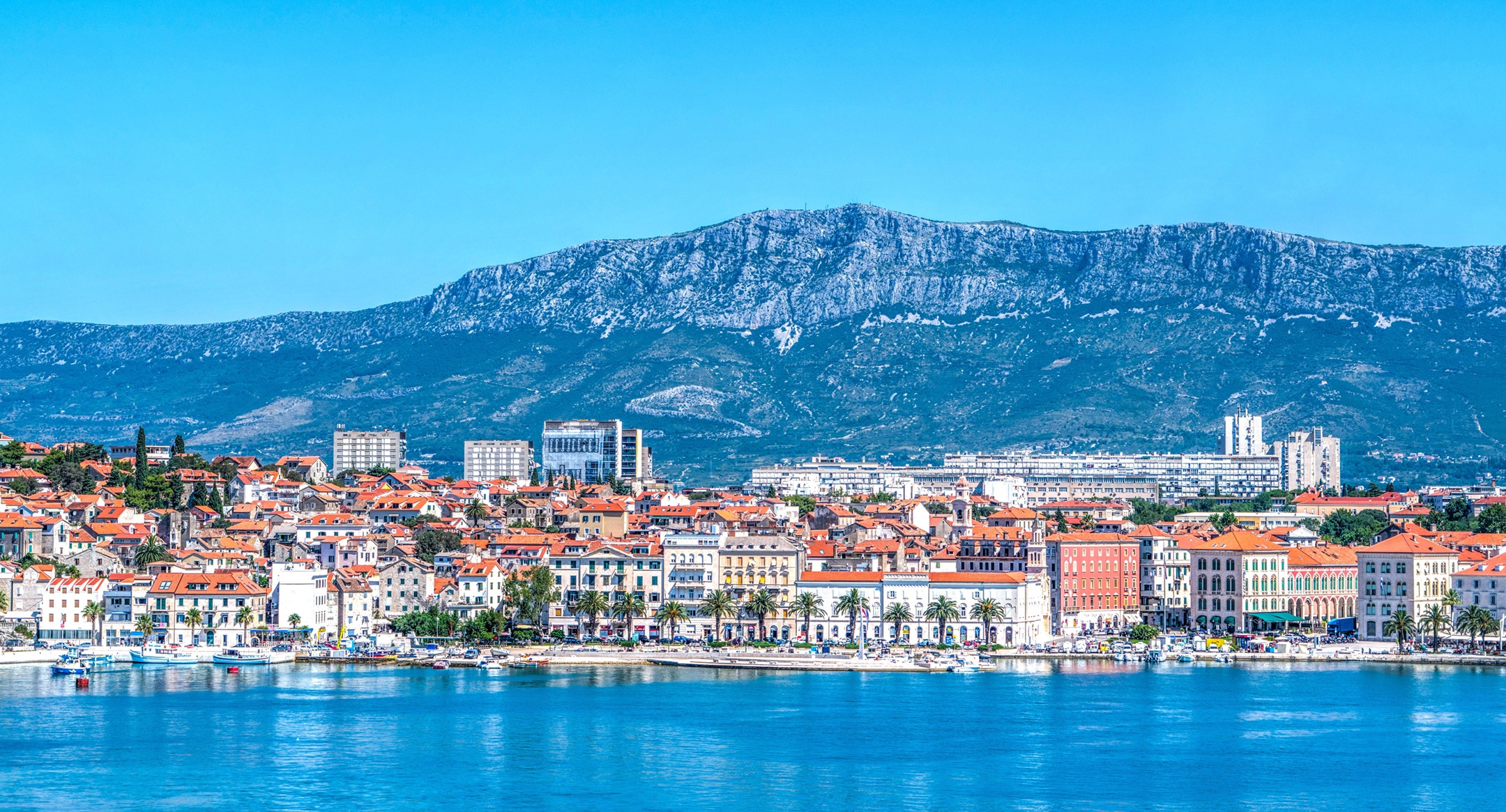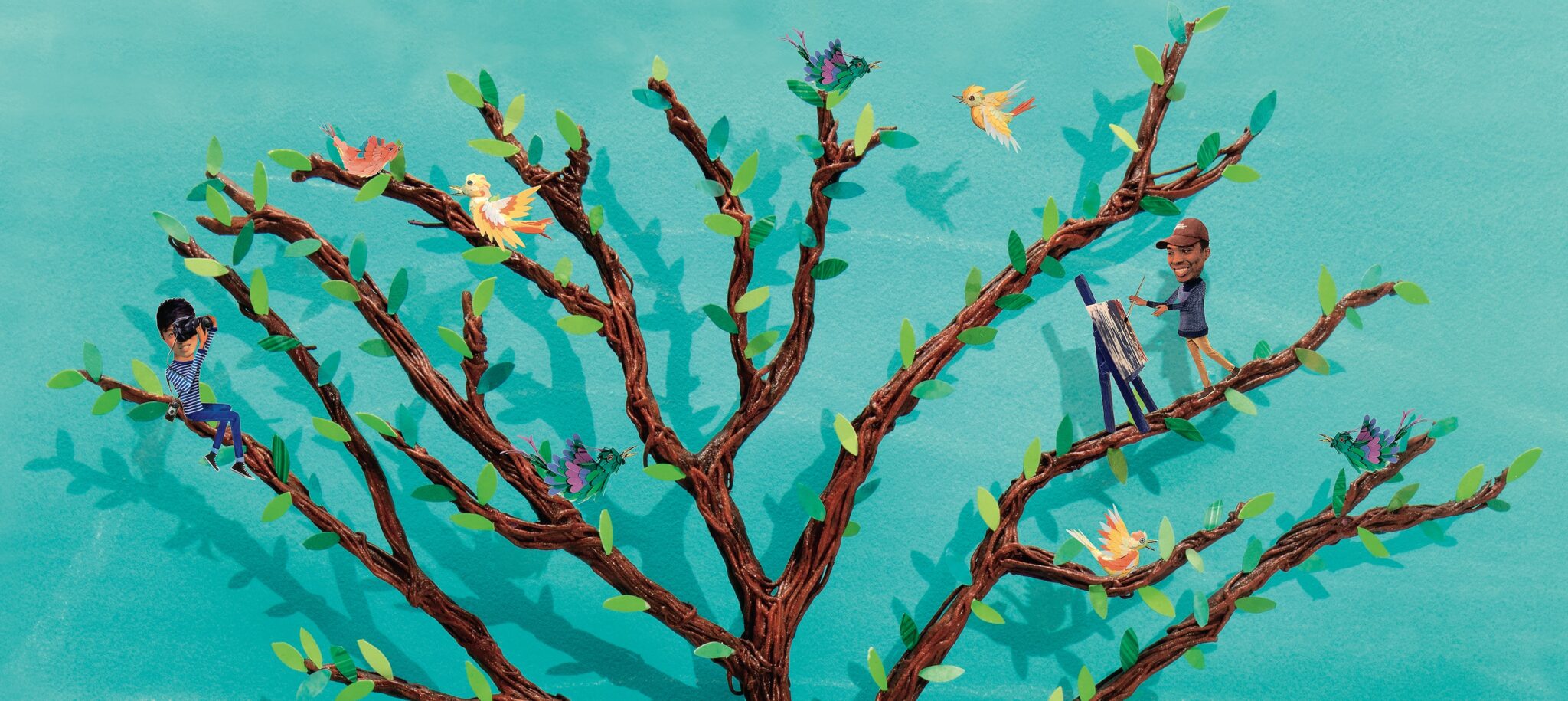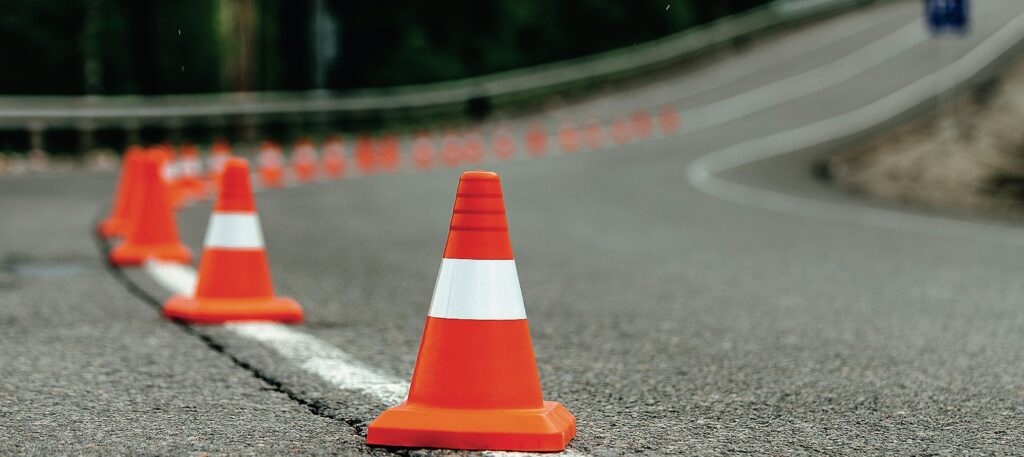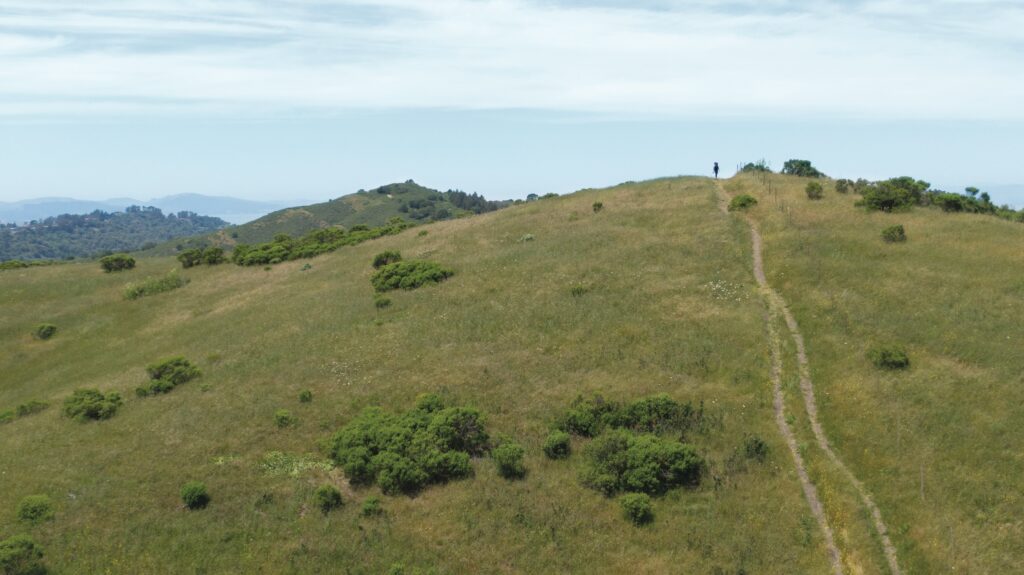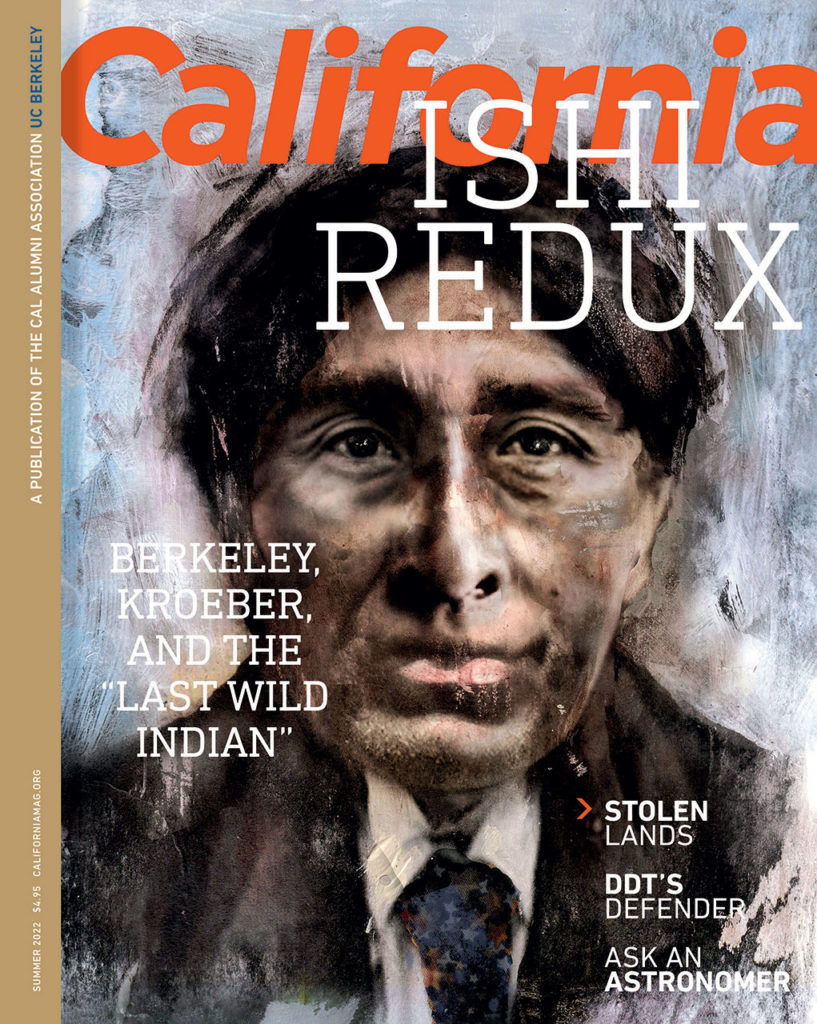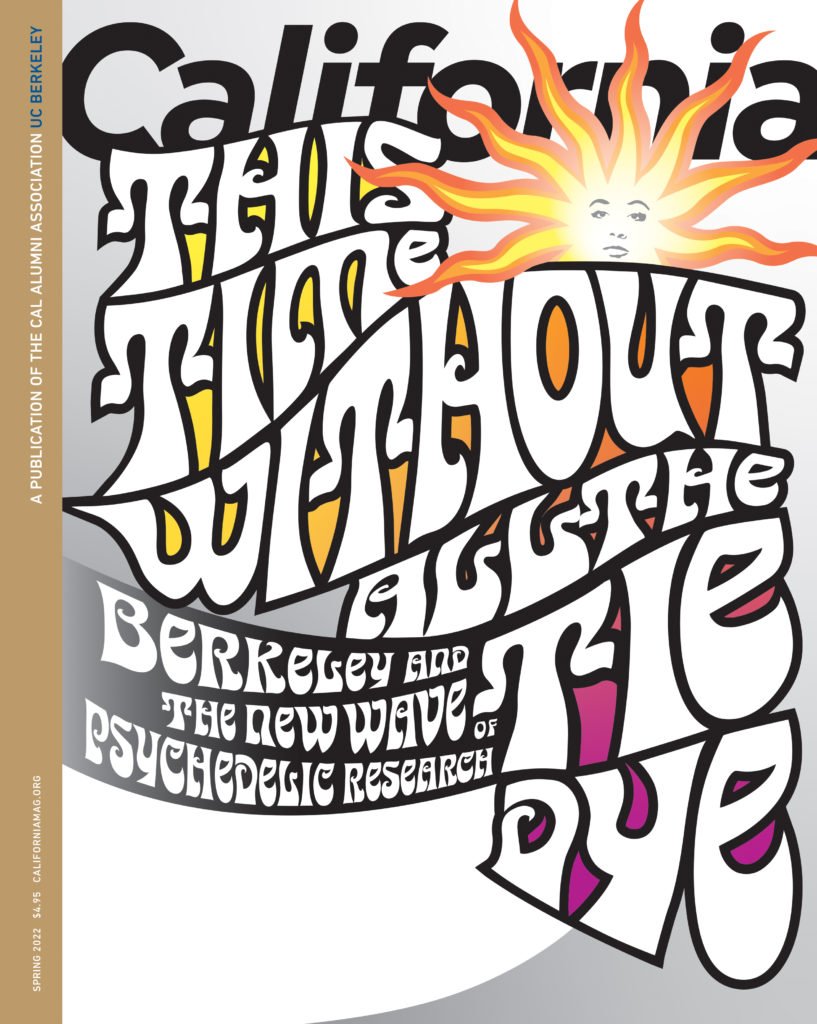What Dacher Keltner teaches isn’t likely to land you a job on Wall Street or even make you more hireable, but that’s not really the point.
Rather, it’s an opportunity to grapple with one of the oldest and most important questions: “How can we live the good life? One enlivened by joy and community and meaning, that brings us a sense of worth and belonging and strengthens the people and natural environments around us?”
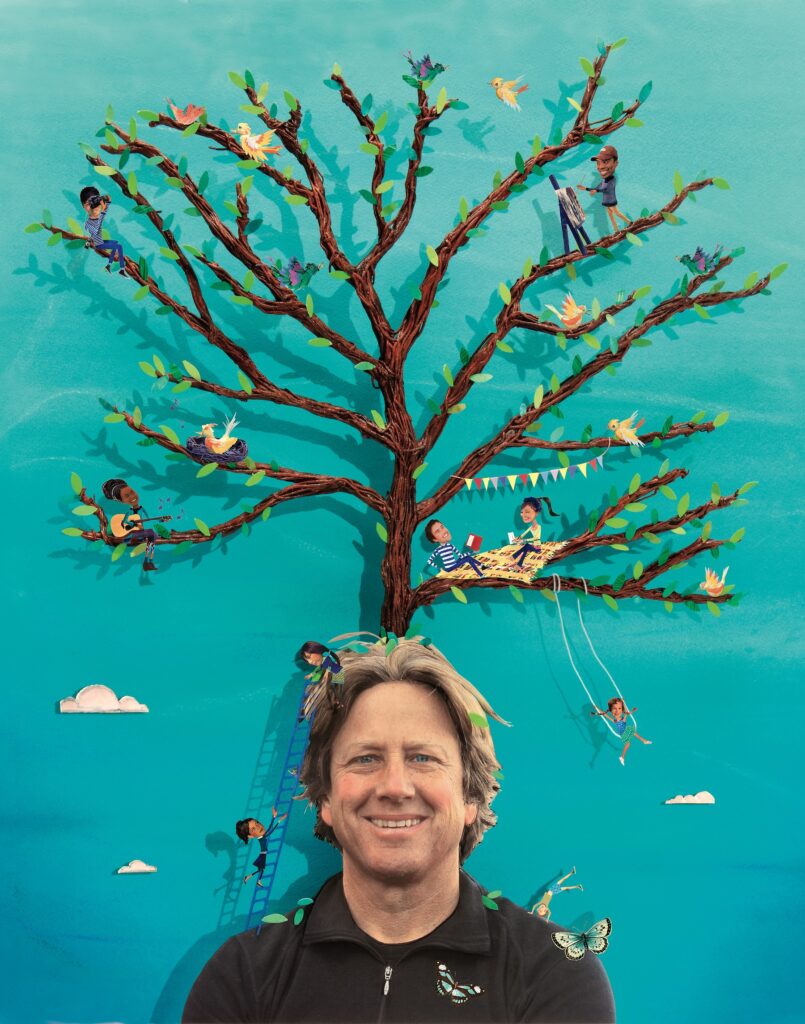
As faculty director of the Greater Good Science Center, professor of psychology at Berkeley, and host of the popular Science of Happiness podcast, Keltner has made a career of studying and teaching positive emotions like compassion, pride, and gratitude. But after the death of his brother, Rolf Keltner (’89), in 2019 from cancer, he turned his attention to another, arguably more profound emotion: awe. Keltner defines awe as “the emotion we experience when we encounter vast mysteries that we don’t understand.”
In his new book, Awe: The New Science of Everyday Wonder and How It Can Transform Your Life, Keltner explains how he and his colleagues measured awe in lab settings but also shares stories of awe as experienced in people’s lives. It can be as simple as marveling at the natural world or spending time with a loved one. Or it can be a major life event, such as a birth or, as in Keltner’s case, watching a sibling die.
“We can find awe anywhere,” Keltner concludes. And we should, because it’s good for us. When his book came out, California sat down with Keltner to discuss awe—what it is, why we need it, and how we can find it for ourselves.
This interview has been edited for length and clarity.
Awe isn’t necessarily a positive emotion, is it?
Not at all, and I think that’s really important. Most experiences of awe today, about three-quarters, are positive. “This feels good, I feel energized, I want to make the world better.” But there is in awe an underlying anxiety or uncertainty. “I don’t know how to make sense of this.” And then, very often, awe arises in really hard circumstances. Some of our best emotions arise in response to hard things, such as compassion, which most people believe is the most important human emotion. It’s when we see people suffer that we want to help. So awe does have hard things in it. It’s uncertain, it’s often destabilizing. When my brother died, I was like, “How do I make sense of life anymore?”
Your book grew out of that experience. Does it make you want to be more of an advocate for suffering?
“Watching my brother dying—that changed my life.
The storms are really the source of insight.”
I think as you get older, you start to realize that the really meaningful stuff in life comes out of hardship. Watching my brother dying—that changed my life. The storms are really the source of insight. The first Noble Truth of Buddhism: Life involves suffering, death, disease, and dying. I feel like a subtext of the book is: Go after mystery. If you are facing trauma, engage, like I did with grief, which was so painful. Listen to your body and your mind, and the awe that it is finding.
You write a lot about big experiences like death and birth. But you also write about ordinary instances of awe. How could awe ever be mundane?
A big finding that really caught us off guard was the everyday or ordinary awe. People reported that, about two to three times a week, they were feeling some little piece of awe, and the descriptions were so moving. “I remember walking by a park and hearing kids laugh and play, and it sounded like my childhood.” Or “I remember a friend just coming by and helping me out when I was really broken.” There’s a lot of awe around us to be appreciated.
How can we tap into it in our daily lives?
I teach human happiness to tens of thousands of people: medical doctors, judges, Berkeley students, online, everywhere. And, especially post-pandemic, almost every time I teach it, somebody will come to me and say, “I’m depressed” or “My son is depressed and suicidal.” And they’re like, “What do we do?” And I say, “Get them outside, and go look for awe.” We know awe reduces stress. Awe helps your immune system. We know awe makes you feel like you have more time. It makes you feel like you’re part of a community. I can walk across the Berkeley campus, be awestruck by the trees, and I’m suddenly like, I have a great community, my colleagues are great. If you find a minute or two out of your day, go out to lunch, go watch a cloud for a minute, just see how it changes. You’re heading towards good news. And, man, do we need that right now.
You’re part of the Berkeley Center for the Science of Psychedelics. What role do psychedelics have to play in awe?
Awe is one of the key ingredients of psychedelics. I think it’s good news for a lot of people on balance. The U.S. and Western Europe tend to have a kind of interventionist, “get it in one shot” approach, though. There are a lot of worries I have about psychedelics.
Like what?
The exploitation of Indigenous culture. Put that in bold font. And then psychedelics are just one of many pathways. And the deeper lesson of the science of awe is that there are eight wonders of awe. You can find it in music to your dying day. You can find it in observing nature. You can find it in thinking about the miracle of how children learn language and grow. You can find it in big ideas. We don’t want to trick ourselves into believing that one psychedelic trip or a six-session therapy program is a replacement for the bigger challenge of figuring out the wonders of life and how you want to go after them.
What prevents us from experiencing awe?
It’s the best and worst of times for awe. I look at the music that people share. My younger daughter, Serafina, shares music with me. In one millisecond, I’m suddenly listening to a universe. My older daughter, Natalie, shares visual art with me. But you know, there are obvious culprits that are harming the capacity for wonder in our young people. The smartphone is designed to take mystery out of life—to take out wonder, to take out curiosity.
Also, economic inequality, racism, mass incarceration, this cultural mix right now in the United States. It has people agitated, and that undermines our awe.
How so?
Awe, by its very definition, requires openness. A nonjudgmental approach to mystery. And humility. And, you know, racism amplifies this “us/them” dynamic and activates all the stereotypes that countervail the openness we need for awe. And then there’s something about privilege, wealth, and commodification that undermines our openness to awe.
You’d think wealth would remove obstacles to experiencing life’s wonders.
Privilege brings a heightened sense of self-agency: “I’m in charge of everything. I’m the master of everything.” It brings a sense of the lack of hardship and a lack of mystery. We don’t have data on this, but I think that there’s this privileging of sensory pleasure among the rich. Fine foods and wines and, you know, the hammock at the resort or whatever. And to have awe, you’ve got to get a little raw, you’ve got to get dirty, out in the woods. You’ve got to be around people really showing strength and courage.
How about students? Anything besides phones un-dermining awe in the lives of young people today?
This will be very familiar to parents: Our students are way too test-focused. The minute I give a test, I get a million questions about what’s the curve, what’s the score? Our students need more time to wonder and wander and then get back to some of the philosophy of life–type classes, where it’s more open-ended. I teach Human Happiness at Berkeley, and one of the things I say at the start is that I really want them to think about their philosophy of life. What is meaningful to them?
“Whatever you’re getting goosebumps about, tearing up about, that’s your life.”
UC Berkeley, I think, is the most pressurized university in the world. I was at Stanford for grad school. No comparison. I taught at Wisconsin, a big public university. No comparison. I did a sabbatical at Oxford. No comparison. It’s intense here. And we know it. Everybody knows that on this campus.
Young people need to go on journeys. They need to say, “Screw that. I’m going to change the world,” which Berkeley undergrads do. But, to a great extent, we’ve taken that away from our young people. When I teach awe, I say, “Go find awe when you’re young. It might be at a rave or backpacking or a meditation retreat or working in the prisons—whatever it is. Whatever you’re getting goosebumps about, tearing up about, that’s your life.”
And for people who aren’t young? Is awe important at every stage of life?
Every stage. That’s why I start the book, “From wonder into wonder, existence opens.” No way does awe end. It’s always changing.
This is an optimism-themed issue of the magazine, so I have to ask, what do you feel optimistic about these days?
I feel optimistic about a lot of things. I feel very optimistic about this generation of Berkeley students. They’re turning away from the narcissism and self-focus and greed of earlier eras. They’re shaking us, saying, “Hey, the environment, gender, incarceration.” I also feel optimism about Black Lives Matter. Sixty-seven percent of Americans voted. I feel optimistic about the incredible development of knowledge, and what we are learning with gene-editing and about climate crises and plotting forest fires. So I feel optimistic for a lot of reasons. I think the U.S. has big problems: inequality, racism, reliance on fossil fuels. And we’re at an inflection point.
But with so much to feel negative about, is it hard to focus on positive emotions?
Well, it’s really funny. When the pandemic hit, with me being Mr. Compassionate, Mr. Positive Emotions and Happiness, I was like, “Okay, I’m going to go quiet for a year or two.” But it was just the opposite. I was just getting inundated with questions and offers to speak. I spoke to thousands of health-care providers, federal judges, parents, on and on. And the reason is, when we face hardship, we try to make sense of it, and we get this hunger for finding meaning and joy and purpose.
Laura Smith is the former executive editor of California magazine and the author of The Art of Vanishing (2018).


